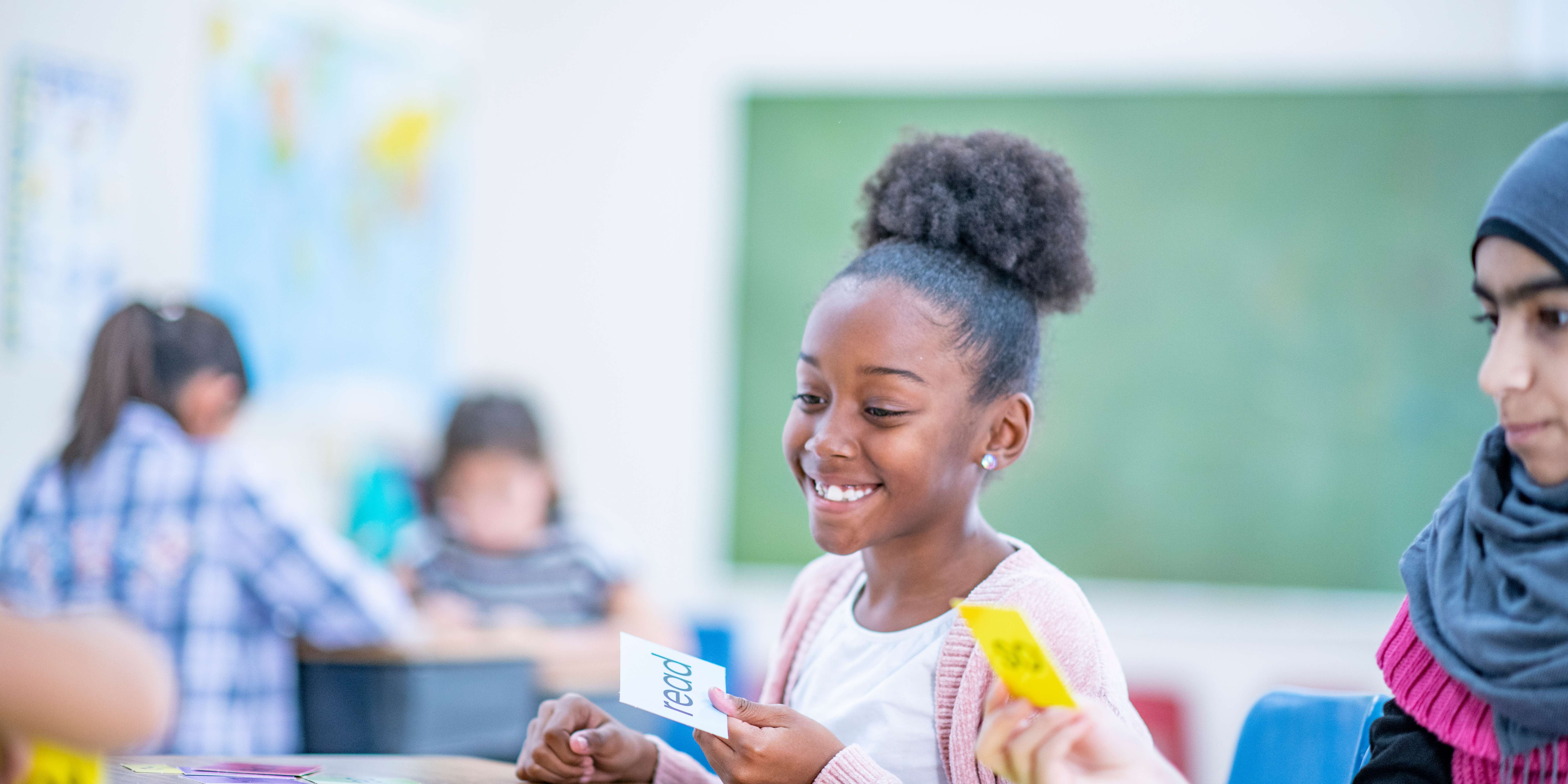Why UDL?
Back in third grade, my teachers noticed I took a bit longer to catch on to new stuff. After some tests, I was diagnosed with a learning disability (LD), and suddenly, I had an IEP with accommodations and modifications. Fast forward to co-authoring the book Universal Design for Learning (UDL) in English Language Arts, it hit me – if Universal Design for Learning (UDL) had been implemented when I was in school, things might've been smoother.
From my own personal account and from our experiences with our students, we genuinely believe UDL can even the playing field for kids with learning disabilities. In a journal article written by Dr. Peggy King-Sears, she notes, "...when educators use different ways to represent content to students, engage students in practice of that content, and provide different ways for students to express what they know, achievement for students with LD increases.”
Universally Designed Games to Play With Your Students
One cool way to incorporate UDL principles into the classroom is through interactive activities, like games. And guess what? You don't need fancy store-bought games; you can totally DIY them! Games by nature are engaging and provide immediate feedback, fostering a sense of accomplishment and encouraging further learning; such a wonderful option for our students with diverse needs who may have difficulty with attention or focus.
Jeopardy with an AI Twist!
One awesome example is the classic game of Jeopardy, and tools like Chat GPT can be super helpful here. Follow these steps to access these tools:
- 1. Choose a template you love.
- 2. Share all the “answers” with ChatGPT or Gemini based on the content you are teaching. For example, if you wanted to create a vocabulary Jeopardy on figurative language, you may prompt with: "I want to create a Jeopardy game for 7th-grade students that relates to the Super Bowl and Taylor Swift. Please create questions that relate to similes, metaphors, personification, hyperbole, and idiom." In less than 2 seconds, we got some amazing ideas such as:
|
Question |
Answer |
|
"The football hungered for the end zone during a critical Super Bowl touchdown." What figure of speech is used here to describe the football's movement? |
|
|
"This Super Bowl was the greatest of all time, an epic clash of titans unmatched in history." What figure of speech exaggerates the significance of a Super Bowl game? |
|
|
After a stunning performance, Taylor Swift said she 'knocked it out of the park.' What does this idiom mean in the context of her performance? |
|
Tip! For an added challenge, encourage collaboration by having team challenges where groups work together to solve a more complex problem or create something based on the question. Example: "As a team, write a short verse for a song that includes at least one of each: simile, metaphor, personification, hyperbole, and idiom, related to a memorable Super Bowl moment."
Engage Students (in Any Subject) with Word Bingo
You know what's a game-changer in the classroom? Word Bingo. It's like the Swiss Army knife of engaging students in any academic subject, and it works for all grades. Imagine tackling a tough biology chapter in the tenth grade. Now, instead of the usual "write sentences" routine, the teacher throws in a curveball – Word Bingo. The teacher selects key vocabulary terms from the unit, the ones that make you scratch your head and go, "Wait, what does that even mean?" Next, students create definitions in their own words, or use visuals to fill out a Bingo card. Students visually see the terms on their bingo cards, they hear the words being called out, and there's that kinesthetic element of actively participating in the game. Now, the teacher can decide how to play it – small groups, peer matchups, or a whole class showdown. It's not just a game; it's a strategy that turns learning into a fun, interactive experience. So, next time you hear "biology chapter," just picture it with a side of Word Bingo. Trust us, it's a game-changer!
To create the bingo cards. you can make a custom one (for a single 5x5 card (assuming the center square is free)), you would need at least 24 unique words. Use a template from Canva's library or BingoBaker.com.
These two awesome games are like superheroes for students with identified learning disabilities! They're not your average study tools – they're like secret agents of fun that let students interact with the curriculum and demonstrate their understanding in various ways. You know, like those action-packed movies where the heroes have multiple ways to save the day? Well, these games are just like that, but for learning! For students who may struggle with expressing themselves in conventional forms, these pathways are a way to make learning a blast while helping every student shine in their own unique way.
Every student should get a fair shot at acing academics from start to finish in their school journey, and there is an added benefit when we can make it interactive, collaborative, and joyful. By incorporating games into your classroom, you can help to create an environment that is more flexible, supportive, and engaging for all students, especially those with diverse needs! There's no one-size-fits-all way of learning. It's on the teachers to present information in all sorts of ways so every student gets the best shot at soaking it in. We often contemplate, isn't that the primary reason we jumped into this job? To ensure every kid, regardless of variability, gets the opportunity to shine.
Continue Your Learning
- Discover strategies and tips to bridge the gap between general education and special education with UDL
- Use this guide to support general education teachers in designing first, best instruction for students with mild to severe disabilities through UDL and DI
- Read My Rookie Mistake in Special Education
Adele Wolff MAd, is a highly experienced Speech Language Pathologist (SLP) with a career spanning since the late 1970s. Throughout her professional journey, she has made significant contributions in diverse settings such as the public school system, private practice, and private agencies. Specializing in addressing diagnosed communication disorders under the Individuals with Disabilities Education Act (IDEA), Adele has worked with clients ranging in ages from 3 to 21.
Over the course of a 13-year career in education, Anne Wolff MEd, has built a professional reputation utilizing expertise in education, arts, media, entertainment, and information/communication technologies on three principles: hard work, efficiency, and continuous improvement. Anne's tech-savvy mindset, coupled with her creative thinking, empowers students and staff to effectively utilize digital tools. Wolff is the co-author of Universal Design for Learning in English Language Arts.


